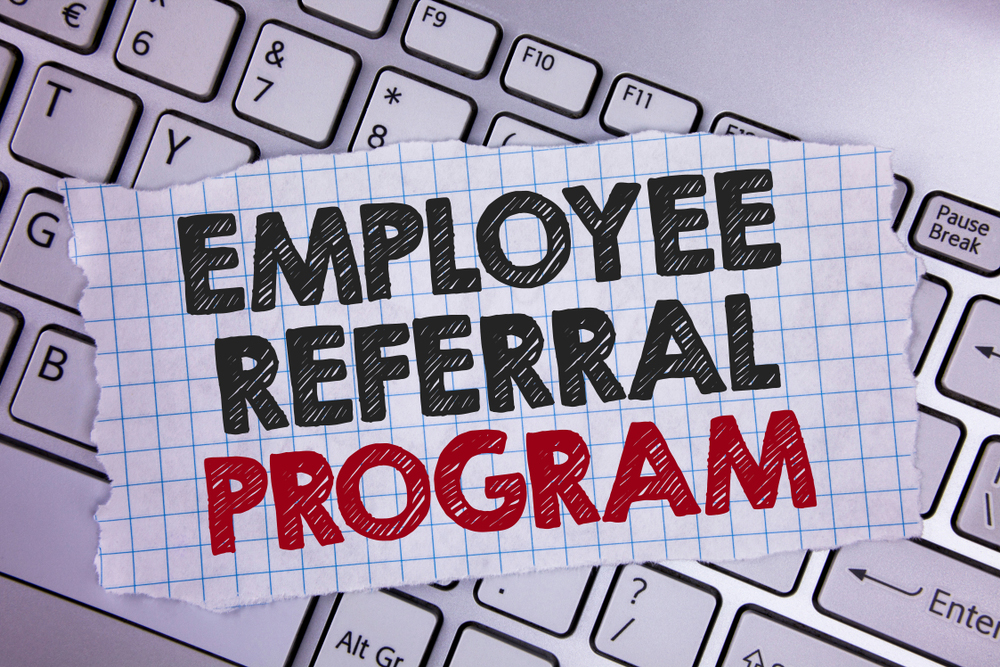Does your organization utilize an employee referral program? If not, it may be a great way to add to your recruiting efforts and get more qualified applicants for tough-to-fill positions. Let’s take a look at tips for setting up employee referral programs, and then, we’ll review a few of the pros and cons.
As the name implies, an employee referral program is a program in which there’s an incentive for existing employees to refer potential new employees to the organization. Usually, this is in the form of cash—a bonus of some sort for referring someone who is qualified and gets hired. Or, it could be two different bonuses—a small one for any referral who completes an application and a larger one for a new hire. Usually, the second bonus is paid after the new hire has stayed with the organization for a preset amount of time, such as 1, 3, or 6 months. (Be careful not to wait too long, as this decreases the incentive.)
The referral should be enough to truly create an incentive—after all, the employee is putting forth a decent amount of effort to promote the organization and the role and convince someone to apply, and ideally, this person is also taking time to peruse his or her network to find a good fit.
Here are a few tips for setting up such a program:
- The bonus doesn’t have to be cash. It could be gift cards, extra paid time off (PTO), etc. Pay attention to what employees prefer. (Cash is often preferred, however.)
- Be sure to be clear whether the referral program applies to all open positions or only specific ones. The decision depends on your organizational needs.
- Create an easy referral setup to ensure that no referral is missed. This may be easy if you have an applicant tracking system, which may already have a referral feature you can utilize.
- Communicate clearly about the referral program: how it works, what roles it is applicable for, what the benefits are, and how to complete the referral process. Emphasize the importance of referring qualified candidates.
- When a referral comes in, have a system in place to ensure that there is communication around the process. The employee should know that the referral has been received and where it is in the process. Give feedback to employees who make referrals.
- Be sure to give the same attention to the referred person when it comes to evaluation; while the referral matters, he or she still needs to be qualified, just as another candidate would have to be.
Benefits of Employee Referral Programs
- These can be a way to find good passive candidates with less work for HR. People in your employees’ networks may be well suited for a job vacancy in your organization, but they may not be currently job searching—these people are much easier to find with an employee letting them know about the job.
- Current employees are likely to know what the employer is looking for and understand who might be a good fit. In this way, candidates they find are essentially prequalified. This could easily reduce the total time it takes to fill a vacancy.
- Employees are likely to have a big network within the industry—possibly even bigger than the recruiters for the organization. This means they may have a wider pool of people who may be interested.
- Employees may feel more trusted if you enable them to bring candidates to the table. They feel their input is valued, especially if someone they suggest gets hired.
- Referred employees may be more likely to stay with the company longer. Not only do they already know someone there, which could ease the transition, but they also may have a greater sense of loyalty from day 1.
Potential Drawbacks of Employee Referral Programs
- Employees may refer others who are job seeking but not actually qualified. They’re trying to help their friends, but not everyone puts full thought into the qualifications.
- If employees frequently refer others but those referrals never get hired, they may become frustrated.
- If the workplace has a lack of diversity, employee referrals may continue this theme.
If you’ve utilized employee referral programs, what has your experience been? What would you add to this list?

